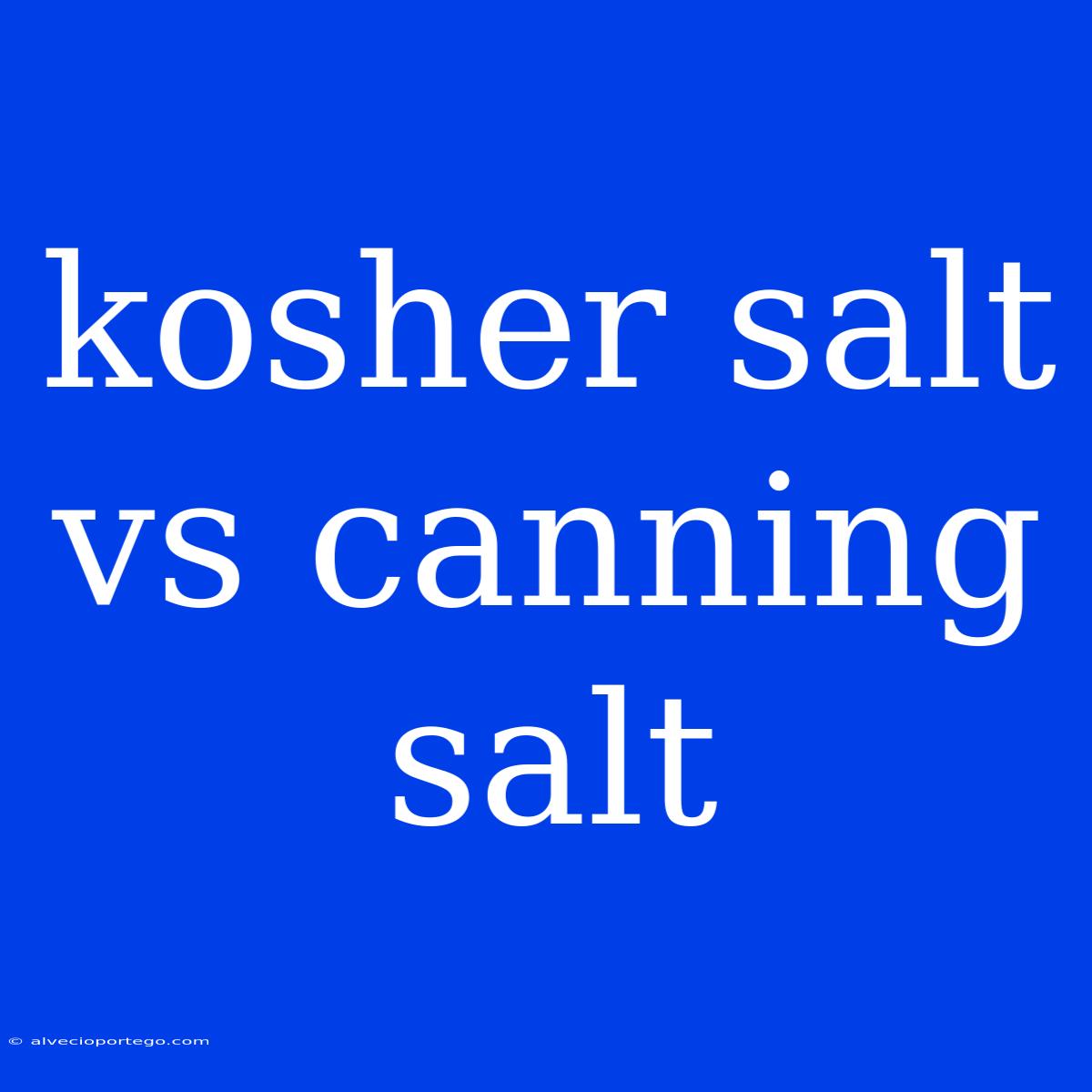Kosher Salt vs. Canning Salt: Which is Right for You?
When it comes to salt, there's more to it than just sodium chloride. Different types of salt are refined and processed differently, giving them unique properties that make them ideal for various culinary applications. Two popular choices often confuse home cooks: kosher salt and canning salt. This guide will break down the key differences between these two salts, helping you choose the right one for your needs.
What is Kosher Salt?
Kosher salt is a coarse, flaked salt with a large grain size. It's called "kosher" because it's traditionally used to draw out blood from meat during the koshering process. However, kosher salt is a versatile seasoning used in kitchens worldwide.
Key Features of Kosher Salt:
- Large Flakes: The large flakes make it easy to pick up and sprinkle, giving you better control over seasoning.
- Lower Sodium Content: Kosher salt typically has a lower sodium content per weight compared to table salt.
- Flavor Profile: Kosher salt has a clean, pure taste without any additives or iodine.
What is Canning Salt?
Canning salt is a fine-grained salt specifically designed for preserving food. It's often referred to as "non-iodized salt" or "pickling salt."
Key Features of Canning Salt:
- Fine Grain Size: The small grains dissolve quickly in liquid, making it perfect for brines and pickling solutions.
- No Additives: Canning salt is free from iodine, anti-caking agents, and other additives, ensuring that it doesn't affect the flavor or texture of your preserved food.
- Consistency: Canning salt's consistent grain size and purity help create a uniform salt concentration in your preservation recipes.
Which Salt Should You Use?
Here's a simple breakdown to help you decide:
Use Kosher Salt When:
- Seasoning Food: The large flakes are easy to control and provide a consistent flavor.
- Cooking: It dissolves well enough for cooking but provides a better texture than finer salts.
- Finishing Dishes: Sprinkle over finished dishes for a textural element and beautiful presentation.
Use Canning Salt When:
- Preserving Food: Its fine grain dissolves quickly and ensures a consistent salt concentration in brines and pickling solutions.
- Dehydrating Food: The small grains allow for even salt distribution and prevent clumping.
It's Important to Note: While kosher salt is often used for seasoning, it's not recommended for preserving food. Its larger grains can create uneven salt distribution and affect the success of your preservation recipes.
In Conclusion
Both kosher salt and canning salt have their unique advantages. Understanding their differences will help you choose the right salt for your culinary needs. Enjoy experimenting and exploring the diverse world of salt!

